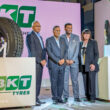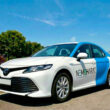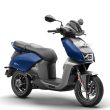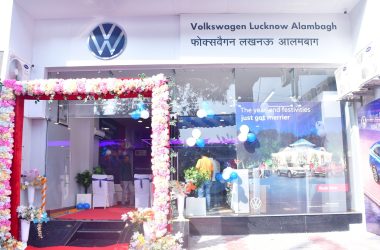Note: The information is from a press release sent to us by the manufacturer. TURBOCHARGED is not responsible for any inconsistencies and inaccuracies in the below data.
Chennai, December 1, 2024: SUN Mobility, the leading provider of energy infrastructure and services for electric vehicles (EVs), today showcased India’s first modular battery-swapping technology for Heavy Electric Vehicles (HEVs) at an event in Chennai. Over 100 private bus operators and operator associations from across Tamil Nadu attended the event.
SUN Mobility in partnership with Veera Vahana, a leading bus manufacturer recently showcased the fully integrated mobility solution designed to electrify bus and truck fleets at Prawaas 4.0, an international conference organized by the Bus & Car Operators Confederation of India (BOCI). The technology solution underscores the dire need to electrify commercial fleets, especially heavy vehicles, which is crucial for cutting emissions, improving air quality, and boosting the overall efficiency of the transportation sector. This event attracted more than 10,000 enquiries for buses and the subsequent workshop was focused on bus operators in Tamil Nadu. In the workshop, details of SUN Mobility’s offering and cost benefit analysis were highlighted. Further, how the solution meets the bus operators’ expectation of switching over to cleaner fuels at similar cost structure and refueling experience as their existing diesel operated buses was also discussed.
During the event SUN Mobility signed MOUs with several leading bus operators in the region, emphasising the game-changing potential of battery-swapping technology in heavy-duty vehicle electrification.
“SUN Mobility has transformed HEVs by addressing key challenges faced by bus operators, including high ownership costs, limited financing options, prolonged downtime due to lengthy charging, and the burden of deploying charging infrastructure. Our modular swapping technology offers a practical, cost-effective solution that boosts efficiency and lowers operational costs for operators,” said Ashok Agarwal, CEO- HEV, SUN Mobility.
Battery swapping will bring down the upfront cost of the buses by 40%, making it comparable to the upfront cost of traditional ICE buses and this coupled with easy access to financing will break the entry barrier for adoption of EVs by fleet owners. Further, it reduces operational costs of fleet operators by up to 20%, while increasing uptime and higher utilization of buses owing to the swift swapping process of under three minutes. In Tamil Nadu, mofussil operations have a unique use-case with very high trip frequency with buses doing 6 to 8 trips in a 1 day (16 hours of operations), where buses plying in a route have 2-10 minutes of gap between them. Such operations will not be possible with fixed battery vehicles which has at least 3 hours of charging required. Battery swapping can provide the right solution for these operations. The compact and light form factor of the battery ensures higher payload-carrying capacities.
Today, buses and trucks form about 5% of the total vehicle population but contribute about 50% of the tailpipe emissions. 90% of the commercial vehicles segment is privately owned and given the cost sensitivity of this sector, battery swapping can facilitate EV adoption and play a vital role in democratising the adoption of electric buses.
SUN Mobility, since its inception in 2017, has onboarded over 26,000 vehicles across two, three and small four-wheeler fleet segments. With more than 650 battery swapping stations across the country, the company clocks around 1.6 million kilometers and 60,000 battery swaps each day, marking an impressive 84% increase from last year’s utilization. With its recent strategic joint venture with IndianOil, SUN Mobility brings together the might of IndianOil’s network of over 37,000 fuel stations across the country clubbed with SUN Mobility’s unparalleled battery-swapping technology making it as accessible as conventional fuel stations. It will thus streamline the customer’s EV experience by conveniently offering Battery as a Service (BaaS) nationwide and alleviate worries about battery cost, battery obsolescence, maintenance, replacement, and charging time.










